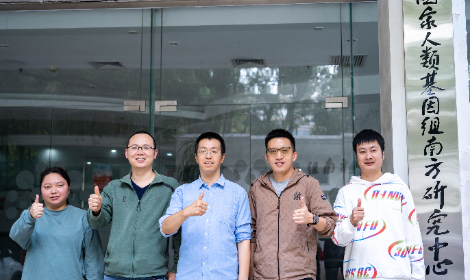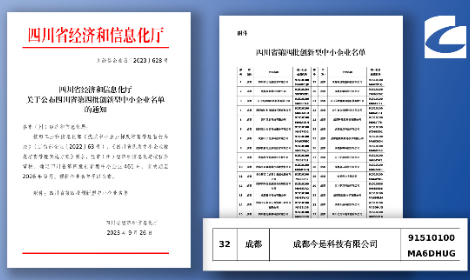
This fingernail-sized chip could unlock genetic ''secrets''
A few drops of blood, a few hours, a few hundred yuan can realize the sequencing of the entire human gene, crack all the "secrets" in the gene, Chengdu Jinshi Technology Co., LTD. (hereinafter referred to as "Jinshi Technology") is approaching this vision. On August 31, the reporter learned from the Tianfu Life Science and Technology Park that the topic undertaken by science and technology today - "Development of the fourth generation of nanopore gene sequencer core microflow chip" was approved by the Provincial Science and Technology Department for the "Major science and Technology project of Sichuan Province Biotechnology and Medicine in 2018" and received 2 million yuan of funding support. Only 3 medical device projects in the province received special funding.
Microstream chip black technology
The size of a fingernail enables high-throughput sequencing
"With the project of ''Development of the fourth generation of nanopore gene sequencer core microflow chip'', the company won the special funding from the provincial Science and Technology Department." In the C1 building of Tianfu Life Science and Technology Park today is the science and technology office, the company''s founder and CEO Su Yunpeng told reporters that the fourth-generation nanopore gene sequencer began research and development in January this year, as of now, the first version of its core components microstream chip has been streaming (that is, like an assembly line through a series of process steps to manufacture chips). Su Yunpeng showed off a microfluidic chip the size of a fingernail and less than 1 millimeter thick. "Do not look at its small size, it can support the normal work of tens of millions of protein nanopores, through which to achieve single-molecule, low-cost, high data quality, convenient and fast high-throughput nanopore sequencing."
"Since its inception, the goal of today''s technology has been to achieve medical-grade human genome sequencing through a few drops of blood, a few hours, and a few hundred dollars." Su Yunpeng said that at present, the mainstream second and third generation gene sequencing on the market is not only expensive and thousands of dollars, but also has not followed the test and the convenience of obtaining sequencing results in time, at the same time, the data quality of the second and third generation gene sequencing (that is, the length of the sequencing process of the base once), coverage, sensitivity and other aspects determine that only simple genetic testing can be carried out. Cannot be further applied to precision medicine. "The human body has 6 billion bases, a total length of about 2 meters, the current mainstream second-generation sequencing base read length of 150 bases, such a short read length can not identify human gene structure variation information." Su Yunpeng said that these drawbacks lead to the second generation, the third generation of gene sequencing can not be applied to clinical, this is the fourth generation of nanopore gene sequencing developed by science and technology, through microflow chips, analog chips, digital chips and other core components, so that gene sequencing can really go to clinical.
Targeting clinical care
The product is expected to be available in 2021
"The 2 million yuan special funding won this time will be mainly used for chip flow and testing." From the design of the chip to the formation of the real object, it costs about 200,000 yuan to 3 million yuan at a time. If we "group buy" with others, it is about 200,000 yuan to 300,000 yuan at a time; If you choose an independent streaming film, it will cost about 3 million yuan." Su Yunpeng said that since January this year, the research and development cost of the fourth-generation nanopore gene sequencer has reached more than 6 million yuan, and the entire product is expected to cost 200 million yuan.
With the increasing public concern and demand for health, the gene sequencing market has a broad prospect. Previously, Roche, the world''s leading gene sequencing company, predicted that by 2025, the entire upstream and downstream gene sequencing market will reach $600 billion. In the upstream and downstream markets, gene sequencers are not only the starting point of the gene sequencing industry chain, but also a crucial link, providing the most basic sequencing support for the entire middle and downstream sequencing services. "In the future, precision medicine in the large health industry is a good development direction, and clinical medicine occupies an important part of it. Extending genetic testing to the clinical medical field can not only promote the development of precision medicine, but also bring great convenience for patients to treat diseases." In Su Yunpeng''s view, clinical medicine will occupy a large part of the gene sequencing market in the future, and it is bound to be won. At the end of this year, Jinshi Technology will launch the principle prototype of the fourth-generation nanopore gene sequencer, and it is expected that the fourth-generation nanopore gene sequencer will be listed in 2021. "After the product is put on the market, it is expected to achieve annual sales revenue of 1 billion yuan within three years, and it will break the monopoly of European and American manufacturers in the domestic market in the field of gene sequencing." Su Yunpeng is full of confidence in his future development.
Original address:Click to open the link

Geneus Technologies' first commercial nanopore gene sequencer G-seq500 is launched

Geneus Technology was successfully selected into the list of innovative smes in Sichuan Province

Chengdu Geneus Technology Co., Ltd. nanopore gene sequencing platform industrialization base environ..